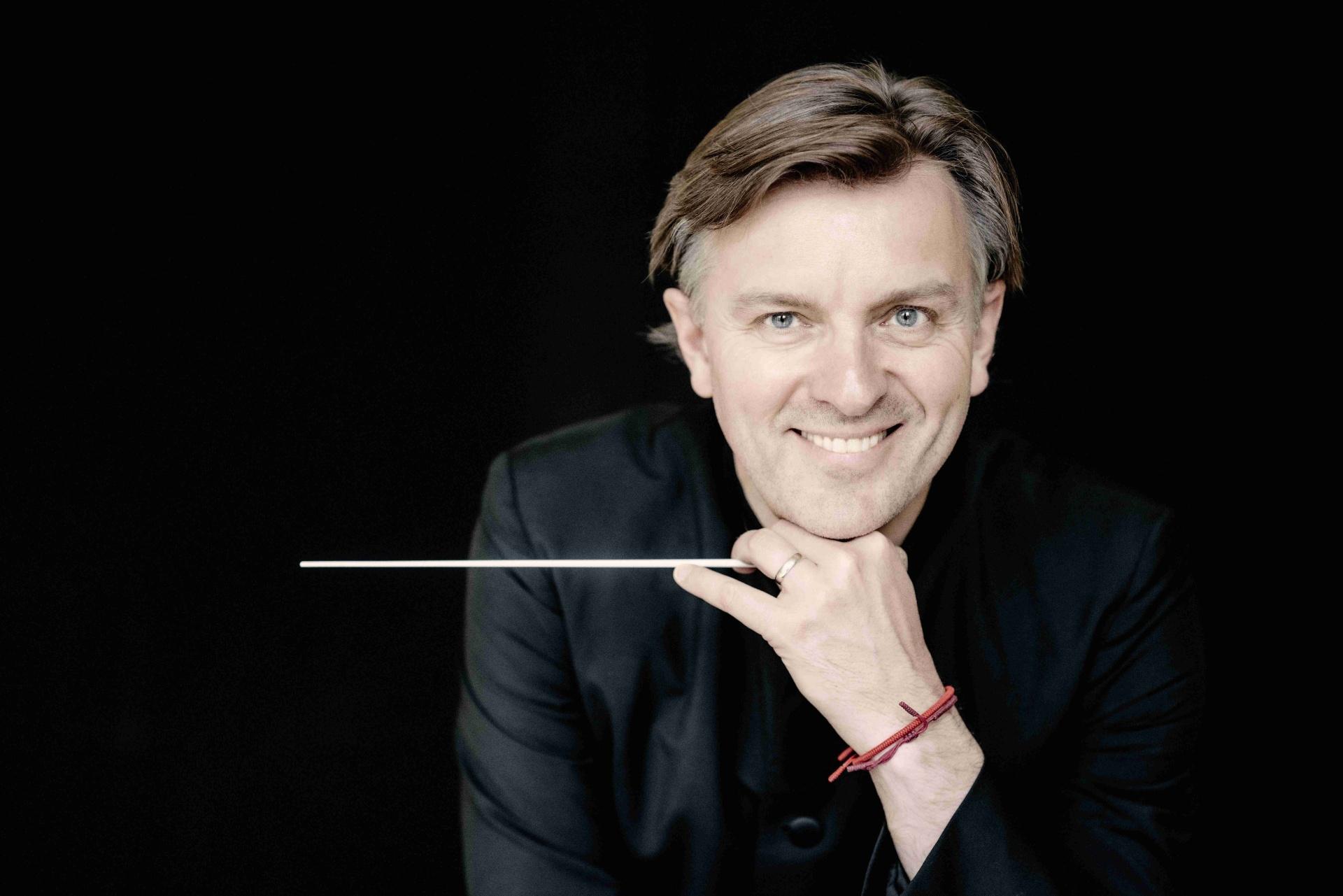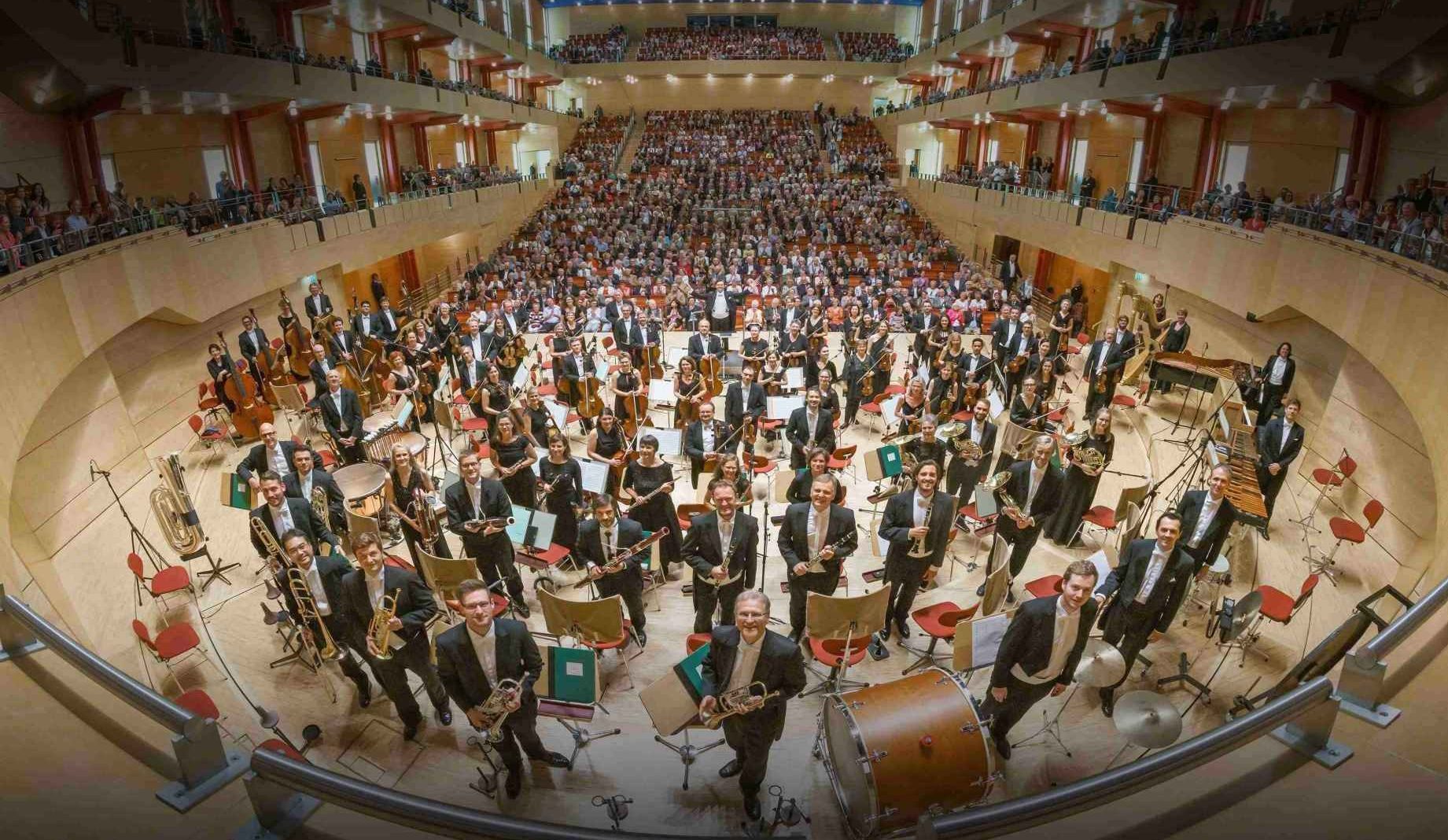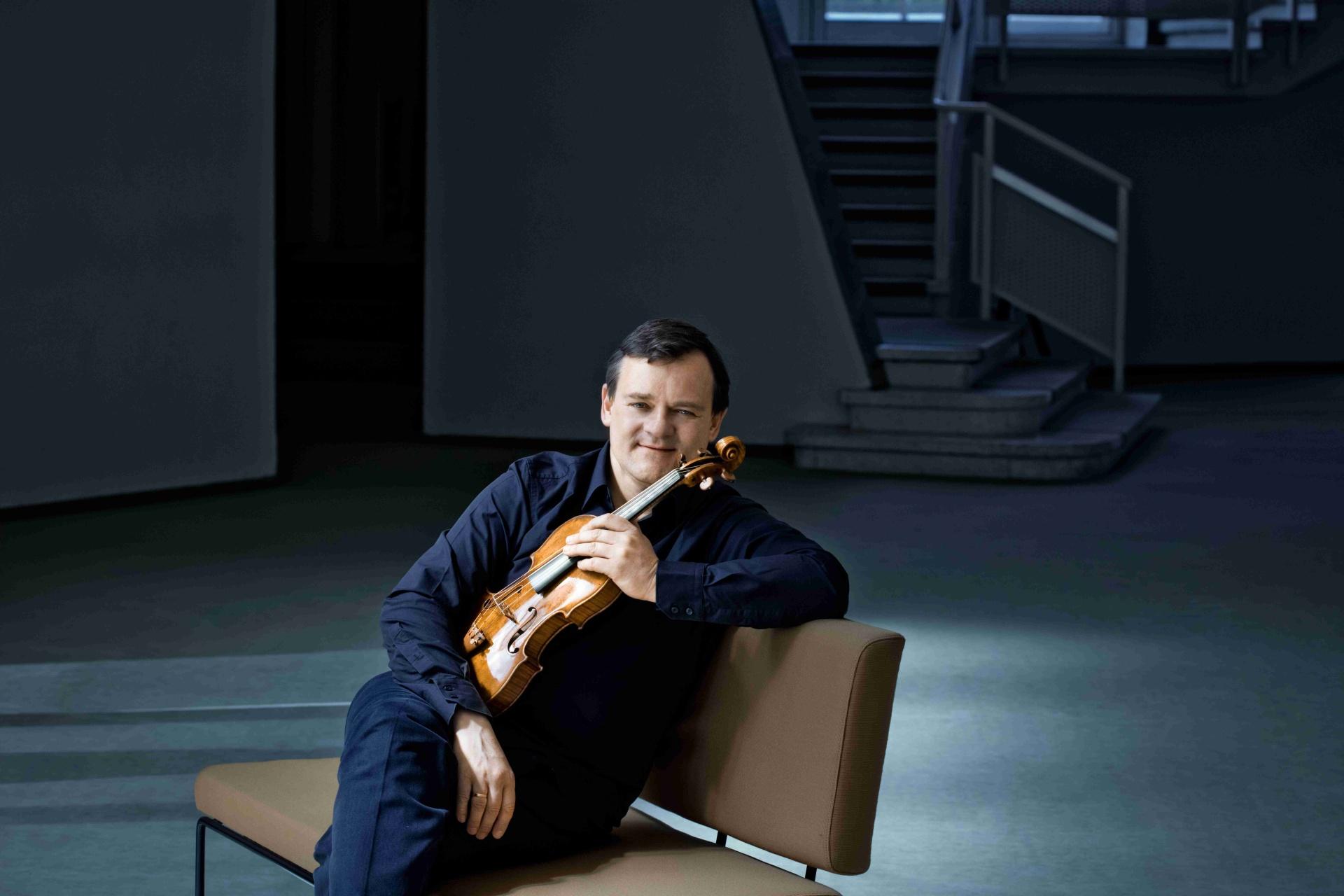ESSENER PHILHARMONIKER
Programme
- Edward Elgar: Concerto for Violin and Orchestra in B minor Op. 61
- Antonín Dvořák: Symphony No. 5 in F major Op. 76
Performers
- Essener Philharmoniker
- Tomáš Netopil – conductor
- Frank Peter Zimmermann – violin
Tomáš Netopil & Essener Philharmoniker – Prague Spring Festival 2023
The Essener Philharmoniker and their Czech chief conductor Tomáš Netopil will bring two masterworks of the Romantic repertoire to their festival performance – Antonín Dvořák’s Symphony No. 5 and, for the first time at the Prague Spring, Concerto for Violin and Orchestra by Edward Elgar. The solo part is entrusted to one of the greatest violinists of the present day, Frank Peter Zimmermann. “He is our regular and ever-precious guest in Essen. The Prague Spring performance will be the culmination of our collaboration this year,” says Tomáš Netopil. Tomáš Netopil is mainly known to the Czech public from his time as chief conductor of the National Theatre in Prague (2009–2012) and as one of the two main guest conductors of the Czech Philharmonic, with whom he opened the festival in 2018. Since 2013 he has served as the artistic director for opera and the chief conductor of the philharmonic orchestra in Essen, Germany. For their tenth and final season together, he will lead the orchestra in their first joint performance at the Prague Spring. “Thanks to our years of cooperation, but I think even without it, the Essener Philharmoniker has a very profound and intense connection with Czech music,” Netopil remarks. During his time in Essen, the orchestra’s repertoire included works like The Greek Passion, Jenůfa, Rusalka, or the symphonic music of Josef Suk, Karel Husa, and Antonín Dvořák.

For their Prague Spring concert, the Essener Philharmoniker have chosen Dvořák’s Symphony No. 5 and Edward Elgar’s Violin Concerto. “The Fifth Symphony was one of the few missing pieces in our repertoire this season, and I’m thrilled that we’re the ones to bring it to the Prague Spring,” he adds. The work holds a key position in the Czech composer’s oeuvre. It concludes his series of slightly rough-hewn early symphonies; its impeccably refined form ushers in a string of symphonic masterpieces. It was premiered in Prague in 1897 under the baton of Adolf Čech. After its second performance in London’s Crystal Palace nine years later, the composer and music journalist Charles Barry wrote to Dvořák: “Dear friend, I have the pleasure to be the first (I think) to tell you that your Symphony Op. 76 was splendidly played yesterday, and very warmly received.[…] The last movement, without undervaluing the others, is a grand inspiration, written in a masterful form.”

Elgar’s Violin Concerto ranks among the composer’s greatest works, along with his Cello Concerto or the famous Enigma Variations. “It is a very demanding composition, not just for the soloist but for the orchestra as well; the dense, complex orchestration interweaves with the soloist to create the homogenous form of the nearly hour-long work,” Netopil explains. When the English composer was working on the concerto with its dedicatee and first soloist Fritz Kraisler, the Austrian virtuoso is said to have declared: “You have written an immortal work.” The superb German violinist Frank Peter Zimmermann, who plays on a 1711 violin by the legendary Cremona luthier Antonio Stradivari, will also perform the work with the Tonhalle-Orchester Zürich under Paavo Järvi.








